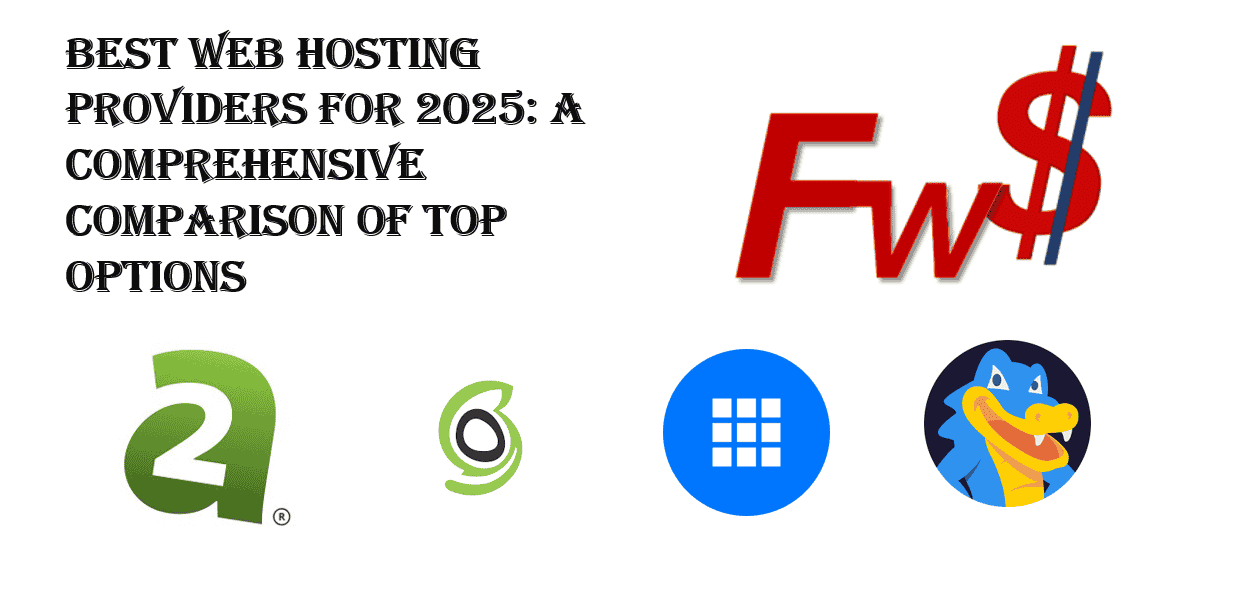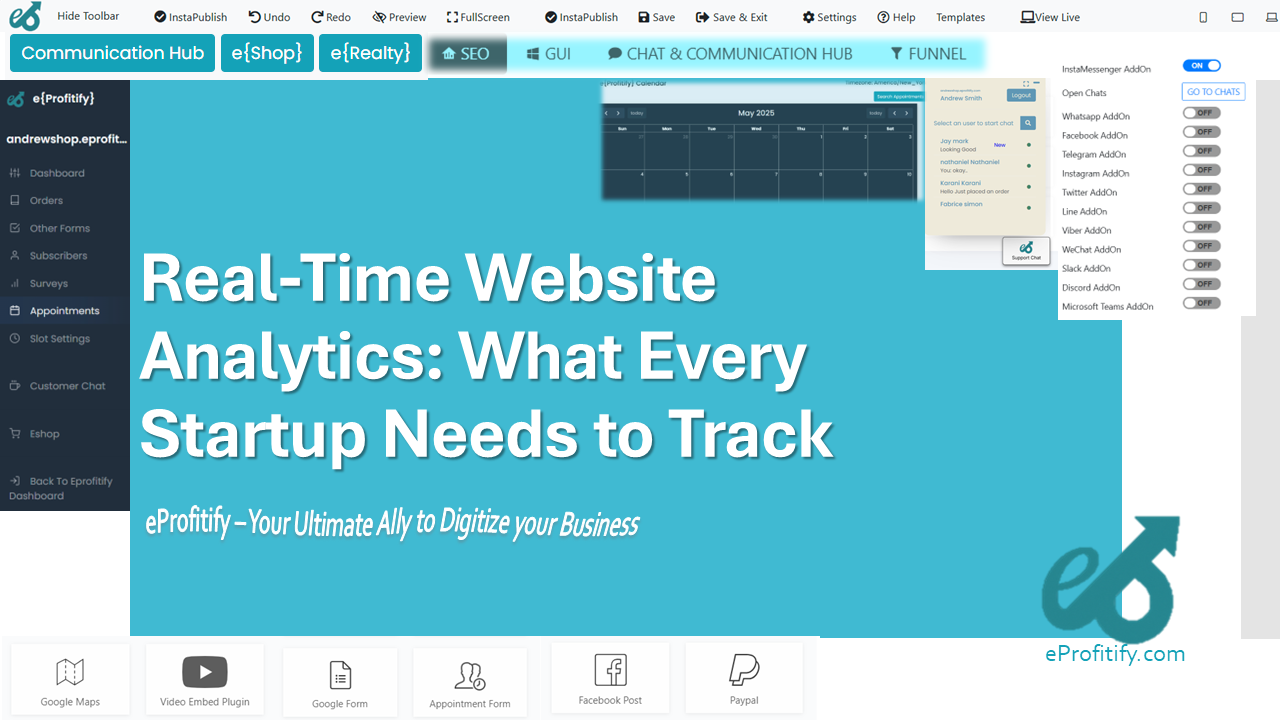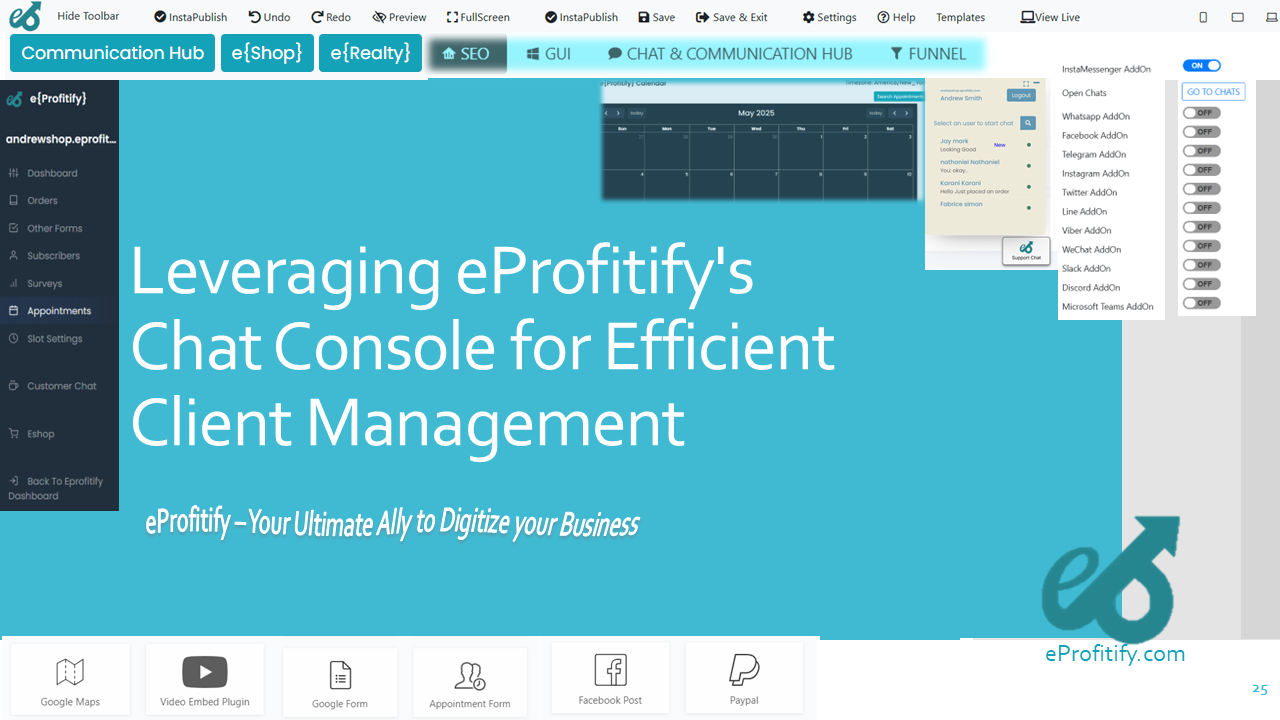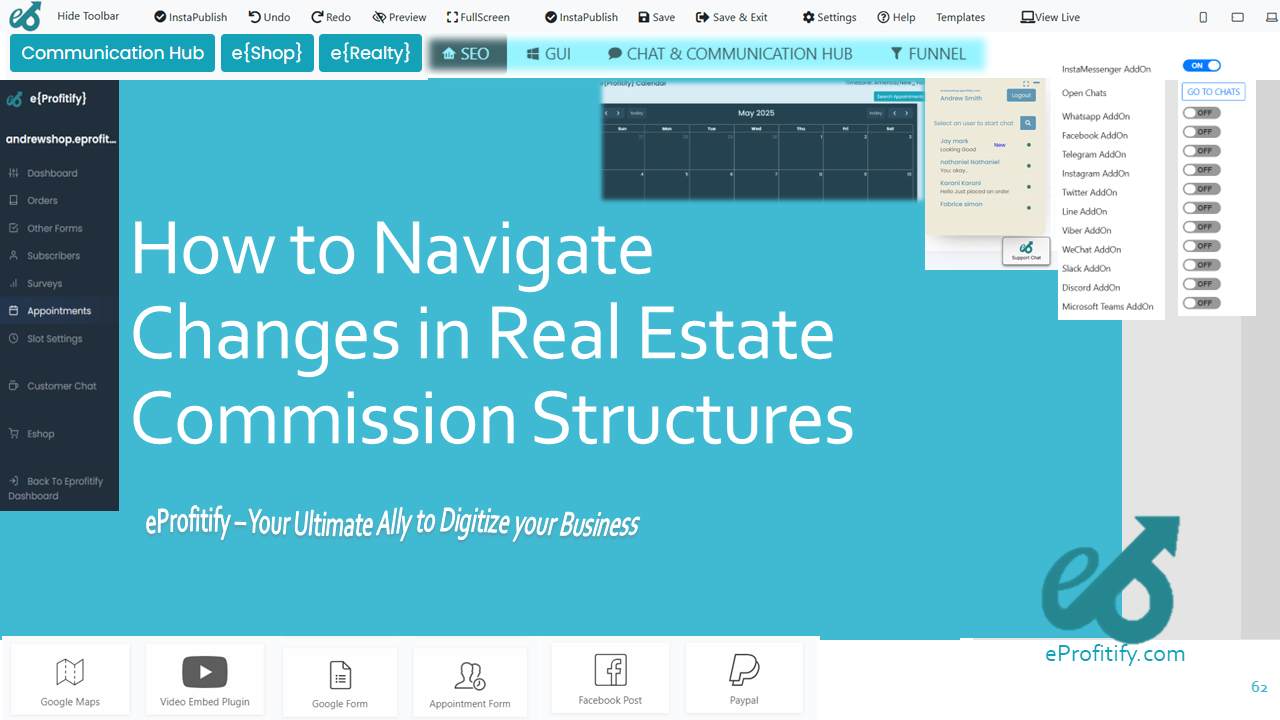The Importance of Understanding Local Zoning Laws
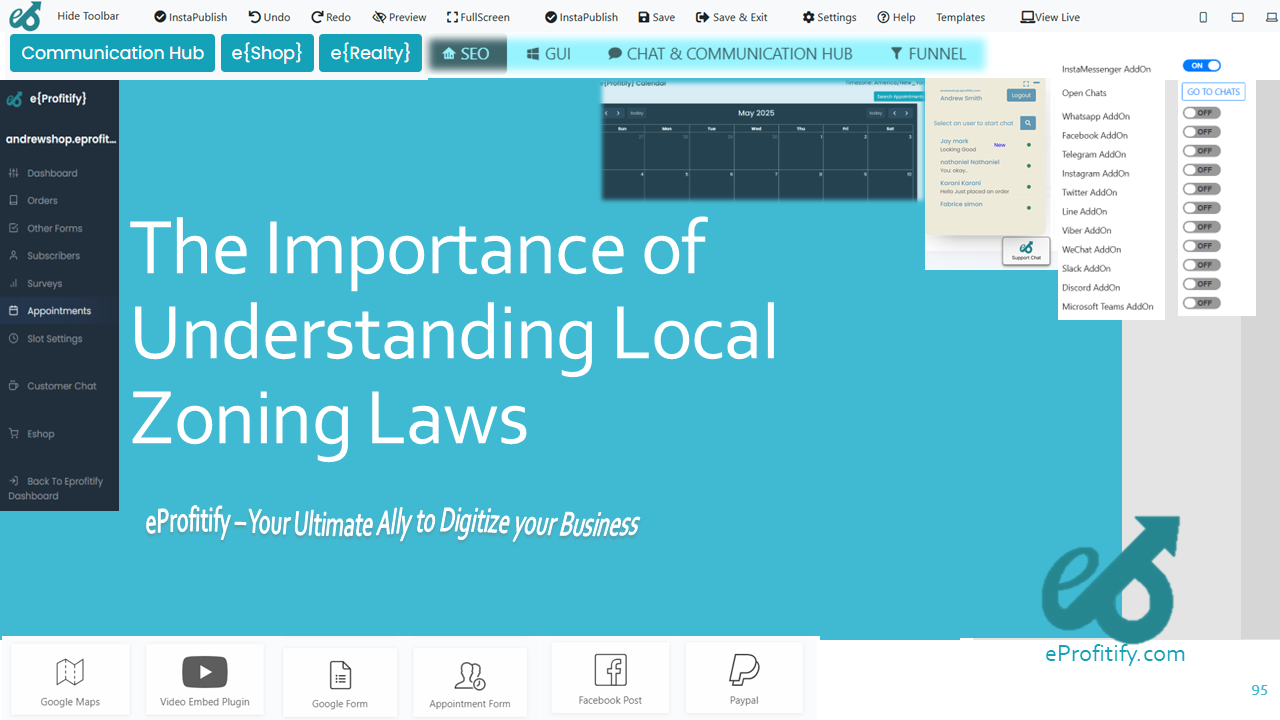
Schedule a LIVE Zoom call with an eProfitify Expert.
The Importance of Understanding Local Zoning Laws for Businesses
Local zoning laws dictate how land and properties can be used in specific areas, regulating everything from building heights to permissible business activities. For entrepreneurs and business owners, navigating these regulations is not optional—it’s critical to long-term success. Ignorance of zoning laws can lead to fines, operational disruptions, or even legal battles that jeopardize a business’s viability. This article explores the importance of understanding zoning laws, shares relevant statistics, and highlights how platforms like eProfitify—a leading website publishing and management tool—equip businesses with features like instant messaging, appointment management, CRM, and ecommerce to streamline compliance.
What Are Zoning Laws?
Zoning laws are municipal or local government regulations that classify land into zones (e.g., residential, commercial, industrial) and specify allowable uses. These laws ensure orderly urban development, protect property values, and maintain community aesthetics and safety. For example:
- A café cannot open in a residential zone without permits.
- A factory must adhere to noise and pollution standards in industrial zones.
Failure to comply often results in penalties, operational shutdowns, or costly rezoning applications.
Why Zoning Laws Matter for Businesses
1. Legal Compliance and Avoiding Costs
Violating zoning laws can lead to fines averaging $500–$10,000+ per offense, depending on jurisdiction. According to a 2022 National Small Business Association survey, 34% of small businesses faced zoning or permitting hurdles during their first year. Rezoning applications alone cost $1,000–$50,000 and take 3–12 months to process, risking delayed launches.
2. Risk Mitigation
Zoning disputes can escalate to litigation. For instance, home-based businesses are often flagged in residential zones; in 2021, 15% of such businesses reported cease-and-desist notices due to zoning violations.
3. Strategic Decision-Making
Understanding zoning helps businesses evaluate locations for expansion. A 2023 report by the Urban Land Institute found that 62% of retail businesses altered site plans post-zoning review to avoid conflicts.
4. Community Relations
Non-compliance can damage a company’s reputation. A café operating late in a quiet neighborhood might face backlash, while adhering to noise ordinances fosters goodwill.
Challenges of Navigating Zoning Laws
- Complexity: Regulations vary widely by municipality.
- Changing Laws: 70% of cities updated zoning codes in the past decade to address urbanization, per the American Planning Association.
- Permit Delays: Average wait times for permits increased by 20% since 2020 due to bureaucratic bottlenecks.
These challenges underscore the need for efficient tools to manage compliance.
How Technology Simplifies Zoning Compliance: The Role of eProfitify
Modern businesses face pressure to juggle compliance, customer engagement, and operations. eProfitify, a comprehensive website publishing and management platform, offers tools to mitigate zoning-related challenges:
1. Instant Messaging for Real-Time Collaboration
Consult with attorneys, city planners, or contractors instantly to clarify zoning rules. For example, a retailer can confirm signage dimensions allowed in a commercial zone without delays.
2. Appointment Management System
Schedule meetings with zoning boards or inspectors efficiently. Automated reminders reduce no-shows, accelerating permit approvals.
3. Integrated CRM
Track communications with municipal authorities, log permit applications, and store compliance documents securely. A centralized system ensures accountability and quick audits.
4. Ecommerce Solutions
For businesses blending online and physical operations, eProfitify’s ecommerce tools adapt to zoning constraints. If zoning limits warehousing, integrate dropshipping suppliers seamlessly.
5. Project Management Tools
Monitor timelines for rezoning applications or construction deadlines. Set milestones to avoid costly delays.
6. Analytics and Reporting
Generate compliance reports for stakeholders, demonstrating adherence to zoning laws—a key factor in leasing or selling commercial property.
Statistics Reinforcing the Need for Proactive Compliance
- $6.5 billion: Estimated annual cost of zoning-related delays to U.S. businesses (Brookings Institution, 2023).
- 40%: Small businesses that attribute permitting/zoning issues as a barrier to expansion (U.S. Chamber of Commerce, 2022).
- 25%: Startups that changed business models due to zoning restrictions (Harvard Business Review, 2021).
Case Study: eProfitify in Action
A boutique fitness studio used eProfitify’s CRM to track zoning permits and document interactions with city officials. Appointment schedulers coordinated inspections, while instant messaging facilitated quick queries about parking space requirements. The studio opened 30% faster than competitors, avoiding $15,000 in potential fines.
Conclusion
Understanding local zoning laws is non-negotiable for sustainable business operations. While the complexities are daunting, tools like eProfitify empower businesses to streamline compliance through instant messaging, appointment systems, CRM, and analytics. By integrating zoning considerations into operational planning—and leveraging technology—businesses minimize risks, enhance community trust, and focus on growth.
In an era of evolving regulations, pairing legal diligence with platforms like eProfitify isn’t just smart—it’s essential for thriving in a competitive landscape.




